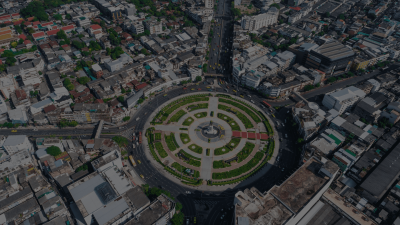
Improving access to redress for workers vulnerable to violence and harassment in South Asia
Experts discuss the factors that make some workers more vulnerable than others to violence and harassment.
This page is approximately a 3 minute read
This page was published on

total investment by Lloyd's Register Foundation in 2023 into projects to put the World Risk Poll into action.
Climate change is a major threat to our safety and wellbeing, and to the health of the planet. In the face of this threat, the 2021 World Risk Poll results confirmed that Africa is the continent with the lowest Resilience Index scores in the world. People in Central and Western Africa reported having experienced flood-related disasters in the past five years more than people in any other global region.
With the ultimate aim of saving lives, the Disaster Risk Reduction for Africa (DRR4Africa) project seeks to improve the resilience of three selected African cities to climate-induced disasters by collaboratively identifying the biggest disaster threats, and developing solutions packages tailored to these cities.
Using the 2021 World Risk Poll results and additional relevant data, this project will support the three selected cities to assess existing risks from climate-induced hazards, allowing each city to better understand what their specific situation is in terms of disaster risk. For example, which hazards are having the most impact on citizens today? Which areas of the city will be most flooded in 10 years’ time? Which population groups and economic sectors will be specifically affected, and at what scale?
Though inclusive, participatory workshops with different sectors represented, DRR4Africa will consolidate existing data on each city’s disaster risk, and turn it into a useful roadmap to guide the way forward. Priority areas of intervention for the municipality will be identified, and a tailored solutions package will be co-developed in each city.
Rapidly urbanising African cities are being hit hard by climate change, and poor communities, especially women, are disproportionately affected. Women are typically the most vulnerable to climate-induced hazards as they often lack access to resources such as capital, land and the internet to prepare or respond to these disasters.
It is within African cities, particularly through women, that some of the most innovative resilience strategies are found.
By building inclusivity and a gender-based approach into the DRR4Africa project, we will ensure that a variety of urban stakeholders are brought together to examine disaster risk reduction and preparedness, thereby enabling climate resilient urban development from a gendered perspective.
The World Risk Poll data enables DRR4Africa to map out which cities have reported the highest levels of vulnerability to climate-induced hazards, and will inform the city selection. This localised data will also be used to consolidate each city’s assessment of existing risks, as well as develop the solutions packages. As disaster risk data is not always available in African cities, it is important to use different sources of information, such as the World Risk Poll, together with participatory workshops, satellite data, climate modelling, and interviews with municipal staff and civil society representatives. The World Risk Poll has the potential to enhance the quality of data for city-level disaster risk planning.
We want to talk to climate champions within municipalities across West Africa, as well as civil society representatives, women’s groups, academics and other people interested in increasing the quality, inclusivity and accuracy of risk assessments for disaster planning where it’s needed most.
To find out more about this project, get in touch with the project team at [email protected].